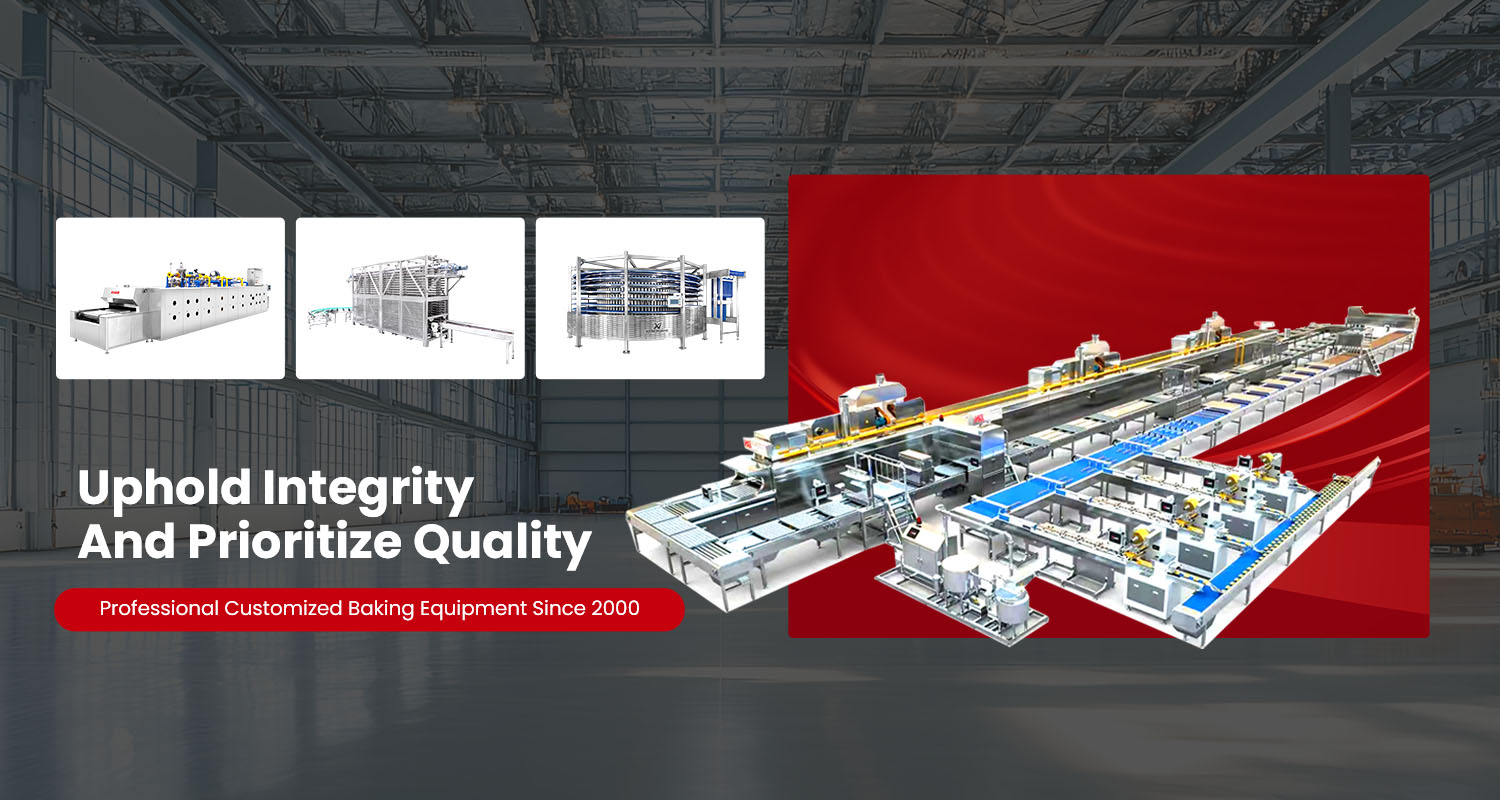How does a tunnel oven improve baking efficiency?
In the modern baking industry, efficiency is a crucial factor that determines production quality and output. Traditional batch ovens often struggle to meet the increasing demand for uniform results and high-volume production. tunnel ovens, on the other hand, offer a revolutionary way to enhance baking efficiency through continuous operation, precise temperature control, and energy optimization. Understanding how tunnel ovens improve efficiency can help manufacturers achieve consistent, cost-effective, and high-quality baked goods across different product lines.
Continuous Production Flow
One of the key advantages of tunnel ovens is their ability to operate continuously. Unlike batch ovens that require frequent loading and unloading, a tunnel oven utilizes a conveyor system that moves products seamlessly through various heating zones. This continuous process reduces idle time between batches and increases overall production capacity.
With adjustable conveyor speeds and temperature profiles, manufacturers can optimize baking time for different recipes without interrupting production. This results in a smoother workflow, minimal human intervention, and faster turnaround times. Continuous baking also helps maintain a steady output rate, which is essential for industrial bakeries and food factories that handle large daily orders.
Uniform Heat Distribution
Tunnel ovens are designed to provide consistent heat across all sections of the baking chamber. Through advanced airflow systems and multiple heating zones, each product receives uniform exposure to heat, ensuring even baking from edge to center. This eliminates the risk of underbaked or overbrowned sections commonly seen in batch ovens.
The precise temperature control in each zone allows bakers to program customized heat curves for specific products, such as cookies, breads, or biscuits. For example, initial zones can provide strong radiant heat for rapid crust formation, while later zones maintain gentle convection to achieve perfect internal texture. This level of control enhances product consistency, reduces waste, and ensures predictable results with every cycle.
Energy Efficiency and Heat Recovery
Energy consumption is a significant concern in large-scale baking operations. Tunnel ovens address this by incorporating energy-saving features such as thermal insulation, efficient burners, and heat recovery systems. These ovens minimize heat loss through double-wall insulation and use advanced air circulation to recycle heat within the chamber.
Many modern tunnel ovens include heat exchangers that capture waste heat from exhaust gases and reuse it to preheat incoming air. This not only reduces fuel consumption but also stabilizes temperature fluctuations, leading to consistent baking performance. By optimizing energy usage, tunnel ovens significantly lower operational costs and carbon emissions, supporting sustainable production goals.
Automation and Process Control
Automation plays a major role in improving baking efficiency. Tunnel ovens are often equipped with intelligent control systems that monitor and adjust temperature, humidity, and conveyor speed in real time. This integration of sensors and software enables bakers to maintain ideal baking conditions without constant manual supervision.
With data recording and digital interfaces, production managers can analyze performance metrics, identify inefficiencies, and implement process improvements easily. Automated alarms and remote monitoring capabilities further enhance reliability and safety. These smart controls minimize human error, reduce downtime, and ensure that every product meets quality standards.
Space Utilization and Scalability
Despite their industrial capacity, tunnel ovens are designed for efficient space usage. Their linear structure allows them to fit into streamlined production layouts, connecting directly with dough preparation or packaging systems. This integration minimizes material handling and movement across the factory floor.
Moreover, tunnel ovens are highly scalable. Manufacturers can customize the oven length, width, and number of zones according to production requirements. This flexibility allows bakeries to expand operations without replacing existing equipment. The modular design also facilitates maintenance and future upgrades, making it a long-term investment in efficiency.
Hygiene and Product Safety
Maintaining hygiene is critical in food processing environments. Tunnel ovens improve sanitation through stainless steel construction, easy-access panels, and automatic cleaning systems. Some models use self-cleaning belts or high-temperature sterilization to eliminate microbial growth. These design elements ensure compliance with international food safety standards and reduce downtime associated with manual cleaning.
By automating the baking process within a closed environment, tunnel ovens also minimize contamination risks. Products are not exposed to open air or human contact during baking, ensuring a safer and more hygienic production line.
Conclusion
A tunnel oven significantly improves baking efficiency through continuous production, uniform heat distribution, energy conservation, and automation. It enables industrial bakeries to produce large volumes of consistent, high-quality goods while reducing labor, energy, and maintenance costs.
For bakeries and food manufacturers seeking reliable tunnel oven systems, KC-SMART provides advanced industrial baking equipment engineered for performance and durability. With precision control, customizable designs, and superior energy management, KC-SMART tunnel ovens help transform baking operations into fully optimized and efficient production lines.






